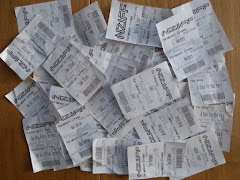The opening credits roll to the slowest and most laid back rendition of Jerusalem I've heard, played on an electric guitar. We are ushered into the preparations for a small cocktail party to celebrate Janet's promotion to health minister in a fictional British Labour Government. While Janet (Kristin Scott Thomas) is joyfully juggling canapés and her cellphone in the kitchen, her unshaven husband Bill (Timothy Spall) is morosely drinking red wine in the lounge and changing LPs on the record player. Gradually the other guests (two and half other mismatched couples) arrive: her cynical best friend and some time adviser, April (Patricia Clarkson) and partner Gottfried (a German new-age life coach), another friend Martha (followed later by her younger partner Jinny) and young banker Tom (who is +1 to his delayed wife).
Filmed in black and white, The Party is a film from the dinner-party-from-hell genre. Where verbal jousting forms the bulk of the action. It's main departure from the genre is the lack of dinning room. The action taking place in the kitchen, lounge, bathroom and tiny garden of a London terrace house.
Beneath an all too easily shredded veneer of friendship, respectability, fidelity and good manners, lies contempt, insecurity, hypocrisy etc. The celebration of Janet's promotion descends rapidly into back biting and farce. The political and religious beliefs of the hosts and their guests seem barely skin deep.
The four female characters are all reasonably believable as four women who live in and around politics. Less believable are the three male characters, especially Bill who we are told is an atheist and an academic who has been offered a professorship at Yale but who comes across like someone with no beliefs, no life experience and an incomplete high school education. Tom, who arrives having just found out that his wife has been having an affair, is highly agitated but not angry at either her or her lover. Gottfried is a man without self awareness and whose education and outlook on life seems to have been gained from the lunatic fringe of Facebook, is not entirely unbelievable but it is unbelievable that he and Alice could have ever met let alone formed a relationship.
It is easy to see The Party as lampooning the post-Blair, pre-Corbyn Labour Party and others in the left leaning upper middle class around the world. But the political overtones are fairly light and it is essentially a film where four women get to be bitchy, in a classy way, about each other (and sometimes their menfolk) over a glass of champagne. At 71 minutes it doesn't outstay its welcome.
Ian's rating 2.5/5
Thursday, August 17, 2017
Subscribe to:
Post Comments (Atom)


No comments:
Post a Comment